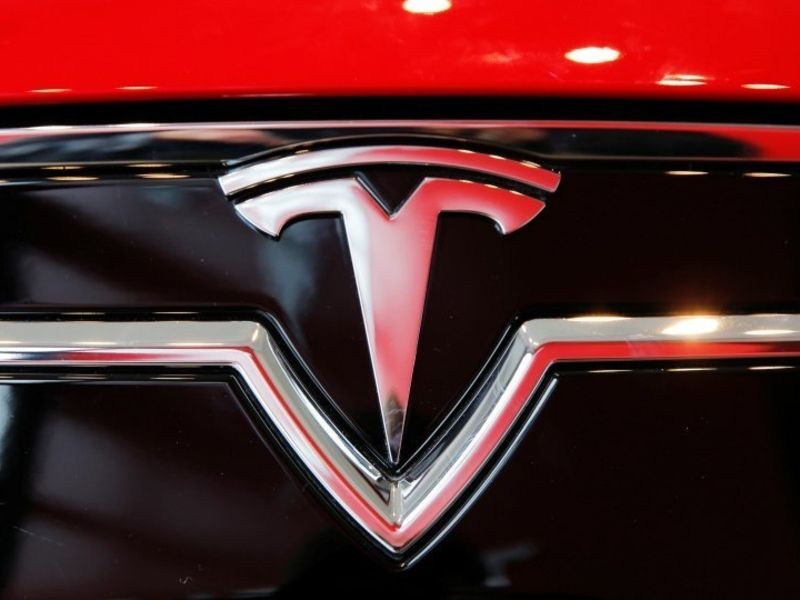
Elon Musk briefed a European battery conference on Tesla’s efforts to bring longer-range electric cars to market in the coming years, though he broke little new ground with regard to timing or other specifics.
The factory Tesla is building near Berlin will make cars tailored for European buyers, including smaller models that can park in dense urban environments, Musk said. He hinted earlier this year that the company might engineer a hatchback from Germany.
“In Europe, it would make sense to do a compact car, perhaps a hatchback,” Musk said during the event hosted by Germany as part of its European Union Council presidency. “I’m sure there will be others as well.”
Tesla will debut improved versions of existing models that approach 700 km (435 miles) of range and has cars under development for the long term that could reach 1,000 km, the CEO said Tuesday. Musk has tweeted before that the revived Roadster model will cross that threshold, but the car is years behind schedule.
Musk, who overtook Bill Gates as the world’s second-richest person on Monday, headlined the event along with others including German Economy Minister Peter Altmaier and his Italian counterpart Stefano Patuanelli. The big names reflect the amount of optimism in Europe about the region’s surge in electric-car demand.
Tesla currently sells four car models including its midsize Model 3 sedan and medium-sized Model Y and Model X crossovers.
All its vehicles are longer than Volkswagen’s Golf car, the European reference in compact sedans.
Musk said he had had some problems parking his 5000-mm (16.4-feet) long Model X in German capital Berlin.
“I was driving a Model X around Berlin and we had quite a bit of trouble finding a parking space where we could fit,” he said.
China’s Svolt Energy Technology said earlier this month it will join larger peer Contemporary Amperex Technology in building a battery factory in Germany in the coming years, while Tesla cell supplier Panasonic may open one in Norway.
Homegrown manufacturers including Swedish startup NorthVolt and a joint venture between French automaker PSA Group and energy giant Total also plan to challenge dominant Asian producers.
At Tesla’s own “Battery Day” in September, Musk laid out a plan to build a $25,000 (21,000 euro) car and cut battery costs in half over the next three years. But making a truly mass-market electric car at a profit will require greater numbers of cheaper batteries than currently available.
Most global automakers have shied away from producing their own battery cells, citing the high investment costs and their lack of expertise in an industry led by LG Chem, CATL and Panasonic.
The European Union said on Tuesday that the region could produce enough batteries by 2025 to power its fast-growing fleet of electric vehicles without relying on imported cells.
Tesla and Musk have the means to finance a major battery push. The 49-year-old entrepreneur’s net worth soared to about $128 billion on Monday, bypassing Microsoft’s co-founder Gates, driven by yet another surge in Tesla’s share price.
The U.S. company is building an electric-car factory near Berlin that will be Tesla’s first in Europe. It’s slated to start production in the middle of next year and could eventually assemble as many as 500,000 cars annually. The project is an important expansion as it positions the company in the backyard of German auto giants Volkswagen Group, BMW and Daimler as they ramp up their own EV offerings.
Tesla is working on cheaper, longer-range and more environmentally friendly batteries than ones available today, Musk said during the conference. They will eventually be made at the company’s German plant.
“We’ve made it now at a benchtop level,” Musk said of battery cells Tesla has been working on in California. “We’re aiming soon to have it done at a pilot-plant level, and then the intent for the Berlin-Brandenburg plant would be to have it done at scale.”
Reuters contributed to this report